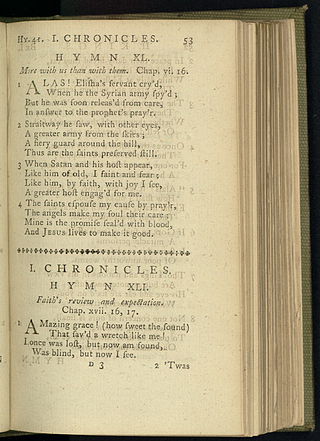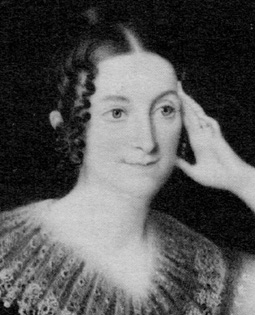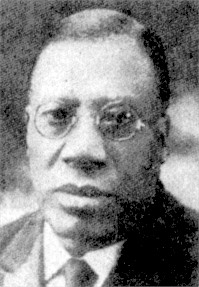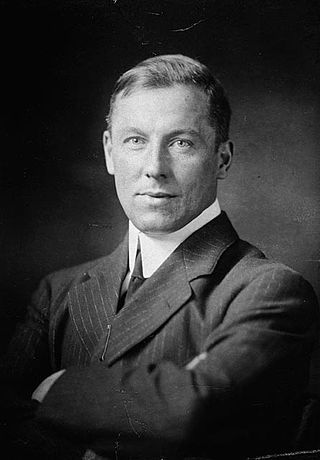This article needs additional citations for verification .(October 2012) |
Franklin L. Sheppard (1852-1930) was a well-known Christian hymn composer who set the poem, This is My Father's World , to music.
This article needs additional citations for verification .(October 2012) |
Franklin L. Sheppard (1852-1930) was a well-known Christian hymn composer who set the poem, This is My Father's World , to music.
Sheppard was born on August 7, 1852, in Philadelphia, Pennsylvania. Sheppard attended William Fewsmith's Classical School and the University of Pennsylvania where he graduated as valedictorian in 1872. In 1875, Sheppard moved to Boston, Massachusetts, to run the foundry for his father's stove and heater manufacturing company. Shepard attended the Zion Protestant Episcopal Church in Boston, but later switched to Presbyterianism. He eventually joined the Second Presbyterian Church in Baltimore, Maryland, and became president of the Presbyterian Board of Publications and Sabbath-School Work. In 1915, he edited the Presbyterian song book 'Alleluia,' which included the song "This is My Father's World."
In 1915 Shepard set to music, "This is My Father's World," a poem written by Maltbie Davenport Babcock, a minister from New York, who had been a close friend of Sheppard's. Sheppard, apparently did not want to call attention to himself and signed using his initials rearranged as "S.F.L." Most sources state that Sheppard adapted the music from a traditional English melody. [1] The poem originally had sixteen verses, but Sheppard chose only three verses.[ citation needed ]
Sheppard died on February 15, 1930, in Philadelphia.

Alan Alexander Milne was an English writer best known for his books about the teddy bear Winnie-the-Pooh, as well as for children's poetry. Milne was primarily a playwright before the huge success of Winnie-the-Pooh overshadowed all his previous work. Milne served in both World Wars, as a lieutenant in the Royal Warwickshire Regiment in the First World War and as a captain in the Home Guard in the Second World War.

"Amazing Grace" is a Christian hymn published in 1779, written in 1772 by English Anglican clergyman and poet John Newton (1725–1807). It is an immensely popular hymn, particularly in the United States, where it is used for both religious and secular purposes.

John Edward Masefield was an English poet and writer, and Poet Laureate from 1930 until 1967. Among his best known works are the children's novels The Midnight Folk and The Box of Delights, and the poems The Everlasting Mercy and "Sea-Fever".

Peter Dodds McCormick was an Australian schoolteacher and songwriter, known for composing the Australian national anthem, "Advance Australia Fair". He published under the pseudonym Amicus, Latin for "friend".

Edgar Lee Masters was an American attorney, poet, biographer, and dramatist. He is the author of Spoon River Anthology, The New Star Chamber and Other Essays, Songs and Satires, The Great Valley, The Serpent in the Wilderness, An Obscure Tale, The Spleen, Mark Twain: A Portrait, Lincoln: The Man, and Illinois Poems. In all, Masters published twelve plays, twenty-one books of poetry, six novels and six biographies, including those of Abraham Lincoln, Mark Twain, Vachel Lindsay, and Walt Whitman.

Ernest Christopher Dowson was an English poet, novelist, and short-story writer who is often associated with the Decadent movement.

Frances Jane van Alstyne, more commonly known as Fanny J. Crosby, was an American mission worker, poet, lyricist, and composer. She was a prolific hymnist, writing more than 8,000 hymns and gospel songs, with more than 100 million copies printed. She is also known for her teaching and her rescue mission work. By the end of the 19th century, she was a household name.

Bayard Taylor was an American poet, literary critic, translator, travel author, and diplomat. As a poet, he was very popular, with a crowd of more than 4,000 attending a poetry reading once, which was a record that stood for 85 years. His travelogues were popular in both the United States and Great Britain. He served in diplomatic posts in Russia and Prussia.

Andrew John Young was a Scottish poet and clergyman, although recognition of his poetry was slow to develop.

Lydia Huntley Sigourney, néeLydia Howard Huntley, was an American poet, author, and publisher during the early and mid 19th century. She was commonly known as the "Sweet Singer of Hartford." She had a long career as a literary expert, publishing 52 books and in over 300 periodicals in her lifetime. While some of her works were signed anonymously, most of her works were published with just her married name Mrs. Sigourney. During the lyceum movement that flourished in the United States in the 19th century, women named literary societies and study clubs in her honor.

Edward Urner Goodman was an influential leader in the Boy Scouts of America (BSA) movement for much of the twentieth century. Goodman was the national program director from 1931 until 1951, during the organization's formative years of significant growth when the Cub Scouting and Exploring programs were established. He developed the BSA's national training center in the early 1930s and was responsible for publication of the widely read Boy Scout Handbook and other Scouting books, writing the Leaders Handbook used by Scout leaders in the United States during the 1930s and 1940s. In the 1950s, Goodman was Executive Director of Men's Work for the National Council of Churches in New York City and active in church work.

Charles Albert Tindley was an American Methodist minister and gospel music composer. His composition "I'll Overcome Someday" is credited as the basis for the U.S. Civil Rights anthem "We Shall Overcome". Another of his hymns is "Take Your Burden to the Lord and Leave It There" (1916), as well as "What Are They Doing in Heaven?" (1901).
Oswald Jeffrey Smith was a Canadian pastor, author, and missions advocate. He founded The Peoples Church in Toronto in 1928.

Lloyd Stone was an American poet best known for the poem "This Is My Song". Stone was also an illustrator and composer.

Robert William Service was a British-Canadian poet and writer, often called "the Bard of the Yukon". Born in Lancashire of Scottish descent, he was a bank clerk by trade, but spent long periods travelling in the west in the United States and Canada, often in poverty. When his bank sent him to the Yukon, he was inspired by tales of the Klondike Gold Rush, and wrote two poems, "The Shooting of Dan McGrew" and "The Cremation of Sam McGee", which showed remarkable authenticity from an author with no experience of the gold rush or mining, and enjoyed immediate popularity. Encouraged by this, he quickly wrote more poems on the same theme, which were published as Songs of a Sourdough, and achieved a massive sale. When his next collection, Ballads of a Cheechako, proved equally successful, Service could afford to travel widely and live a leisurely life, basing himself in Paris and the French Riviera.

"This is My Father's World" is a Christian hymn written by Maltbie Davenport Babcock, a minister from New York, and published posthumously in 1901.
Burleigh Cruikshank was an American football player and Presbyterian minister. In 1914, he was a first-team All-American playing at the center position for Washington & Jefferson College. He later attended the Princeton Theological Seminary and served as a Presbyterian minister in Pittsburgh, Pennsylvania, Steubenville, Ohio and Philadelphia, Pennsylvania.

Elisha Albright Hoffman was a Presbyterian minister, composer of over 2,000 hymns and editor of over 50 song books. The son of an Evangelical minister, Hoffman grew up singing sacred hymns both in church and in the home with his parents. After completing high school, Hoffman furthered his education at Union Seminary in New Berlin, Pennsylvania, and was subsequently ordained as a Presbyterian minister in 1873.
John Welsh Dulles was an American Presbyterian minister and author. He was the grandfather of John Foster Dulles and Allen Welsh Dulles.

Eliza Edmunds Hewitt, also known as Eliza Jane Hewitt, was an American hymn writer, teacher and Presbyterian. She was the author of numerous Christian religious songs. In the beginning, she was active in Olivet Presbyterian Church in Philadelphia. Later she joined the Calvin Presbyterian Church, where she taught the primary class in Sunday school until her death.